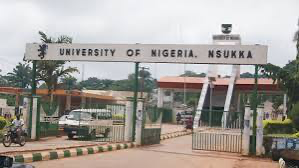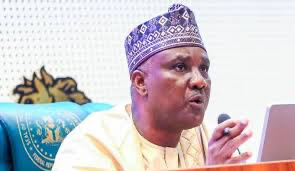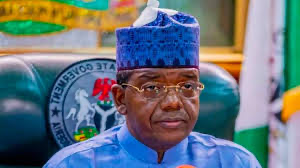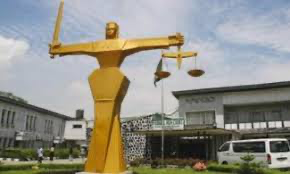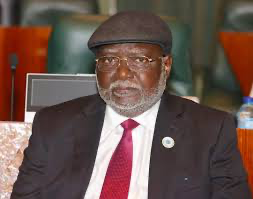By Alumona Ukwueze
The University of Nigeria, Nsukka, UNN, stands tall as a beacon of academic excellence in Nigeria, founded on the principles of knowledge, progress, and equality. It is also unique in its founding in the sense that unlike most other Federal universities, the local hosts enjoy no privileges since the founder- the Eastern Region of Nigeria was a monolith with the entire region considered the host community.
Largely, this has remained the case, hence you will find amongst cleaners and messengers in the university, Nigerians from all over the old Eastern Region. This globalization has largely served the university well in the diversity of the community. And the people of Nsukka glory in the growth of the university, acknowledging at every turn that her fortunes are tied to the success of the university.
However, beneath its prestigious facade lies a deep-seated issue of injustice that has plagued the institution for decades – this relates to the systematic denial of the local hosts of Nsukka Cultural Zone assuming the role of Vice Chancellor. In fact, no son or daughter of Nsukka Cultural Zone has ever served in the University as Vice Chancellor, Registrar, Bursar or Librarian in its nearly 64 years of existence.
UNN, established in 1960 by the visionary Nnamdi Azikiwe and his colleagues, has evolved into one of Nigeria’s most reputable universities, comparable to renowned institutions worldwide. Its three campuses in Nsukka, Enugu, and Ituku-Ozalla have been hubs of innovation, producing impactful research and contributing solutions to national and global challenges. Yet, amidst these accomplishments, a glaring disparity persists – the absence of a Vice Chancellor hailing from Nsukka.
As UNN approaches its 64th anniversary on October 7, 2024, the narrative of injustice echoes louder than ever. Since its inception, every Vice Chancellor, from Dr. George Marion Johnson, who was the pioneer Vice Chancellor to the incumbent Prof. Charles Igwe, has come from outside the Nsukka community. This stark reality contrasts with the abundance of qualified and experienced Nsukka professors, many of whom hold esteemed positions globally.
Were the University of Nigeria well-run, the origin of the Vice Chancellor would never worry a well-meaning person. Who would not want 10 of JOC Ezeilo or 20 of FN Ndili in succession as Vice Chancellor of the University of Nigeria? Unfortunately, where we are today, and particularly in the last few years, the maid is truly acting in ways and saying that if the baby she has come to carry were to die she would without batting an eye lid go back home to carry her mother’s own child. And critical observers now think that the maid is now behaving in ways that can only be construed to mean actively working for the death of the baby.
The last appointment process, where an Nsukka candidate, Prof. James C. Ogbonna, FAS, was arm-twisted and denied appointment through a clearly spurious scoring process, underscores the entrenched political dynamics at play. Anambra State’s influence, often perceived as dominating UNN’s leadership, raises concerns about fair representation and meritocracy. And the outcome? Leadership of the University of Nigeria can now only be likened to a journey of unsustainable exploitation into the forest of firewood, rather than the sustainable trips to the stream of waters.
As though the dissipations of the last ten years were not enough, the dramatic rise and strategic placement of individuals like Prof. Romanus Ezeokonkwo, allegedly to exploit administrative loopholes created by the dissolution of universities Governing Councils by President Bola Tinubu, adds fuel to the growing discontent among Nsukka stakeholders. It is also one that the peace-loving people of Nsukka are unlikely to accept without a whimper.
Well-meaning people and critical stakeholders agreed that UNN’s governance structure must undergo significant reforms to address this injustice and reposition the university to assume its pride of place.
Calls for transparent and merit-based selection processes for key leadership positions, including the Vice Chancellorship, are gaining momentum. The need to break free from historical biases and political manipulations is paramount to restoring trust and fostering inclusivity within the institution.
Moreover, the broader implications of this issue extend beyond UNN’s campus. It reflects broader societal challenges regarding power dynamics, representation, and equity. Nsukka’s struggle for fair treatment resonates with similar narratives across Nigeria and beyond, where marginalized communities seek recognition and equal opportunities.
In response to these concerns, stakeholders within and outside UNN are advocating for proactive measures. Engaging in constructive dialogue, promoting diversity in decision-making bodies, and enacting policies that prioritize merit and inclusivity are steps towards a more equitable UNN.
Furthermore, leveraging the strength of Nsukka’s intellectual capital is crucial for UNN’s continued success. Creating avenues for meaningful participation and empowerment of local talents can unlock untapped potential and drive innovation across academic disciplines.
The upcoming contest for the Vice Chancellorship position in the Institution presents an opportunity for stakeholders to reaffirm their commitment to fairness and justice. By embracing principles of transparency, accountability, and meritocracy, UNN can chart a new course towards a more inclusive and representative leadership structure.
As the nation’s premier university, UNN has a responsibility to lead by example and champion the values of equality and opportunity for all.
The journey towards justice may be arduous, but with concerted efforts and collective determination, UNN can realize its full potential as a bastion of learning, free from the shadows of injustice as it continues its task of restoring the dignity of man.
As a last shot, Nsukka Cultural Zone has without a doubt benefited immensely from the siting of the University. She has also borne disproportionate burden for and on behalf of the university, and one that qualifies her more than any other stakeholders at this point to play critical leadership roles in the university leadership.
